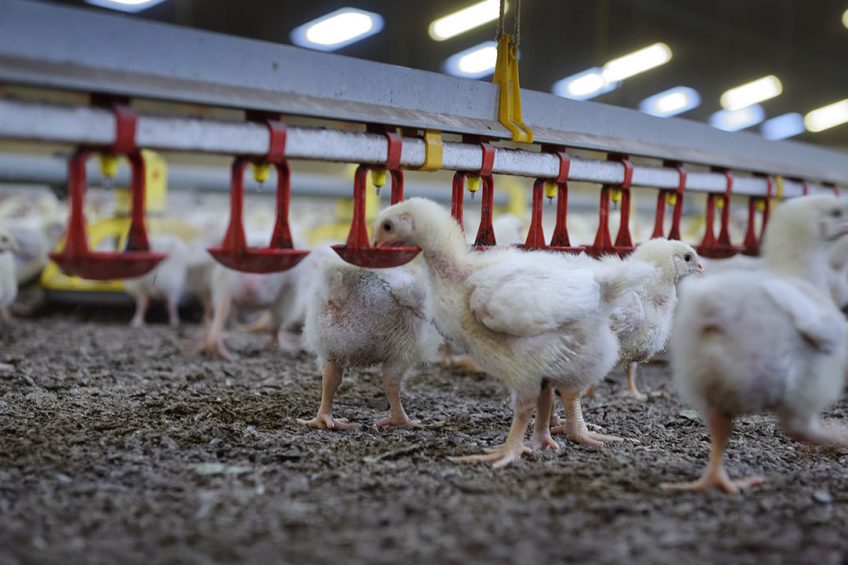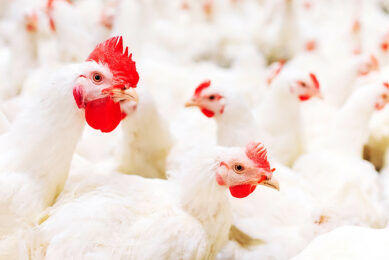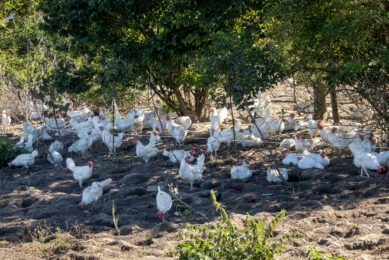Factors affecting water intake and its utilisation by chickens

Water is essential for life and should be regarded as a major factor in poultry rearing and management. The following is a review of some aspects related to water intake and utilisation that should be considered when attempting to achieve better performance.
Factors affecting water intake
Water source
There is a strong relationship between water acidity/alkalinity and the depth of wells from which water is extracted. At 30 metres deep, water was found to be acidic, while in depths of 100 metres or more the water was usually alkaline. Acidic water is more prone to parasitic infestation and could also lead to serious health problems. With alkaline water, there is an indication of water being contaminated with salts such as sodium bicarbonate. Ingestion of bicarbonate-contaminated water often leads to reduced utilisation of some dietary minerals such as calcium, phosphorus, magnesium and potassium. The pH in water was optimal with wells that are 50-60 metres deep.
Watering system
The amount of water consumed through the trough system is usually greater compared to the amount consumed with the nipple system. These results, however, may reflect more the disappearance of water rather than actual consumption by the birds. Broilers provided with nipple drinkers had improved feed conversion and slightly lighter weights, with less mortality and condemnations compared to broilers given water in troughs (Table 1). Further, the nipple drinkers required less labour for cleaning and disinfection than other water supply systems. Nipple drinkers, being enclosed, provide a highly sanitary source of water and hence prevent many disease problems that are associated with the use of other types of drinkers.
Use of cold water
A study was conducted to evaluate the effect of cold water (8°C) and ordinary water (29.5°C) on the production parameters of broiler chickens for 4 weeks. With cold water, the effects of heat stress were alleviated and the birds were able to gain more weight and had higher feed efficiency. Birds were also more responsive to vitamin C supplementation (500 mg per litre of water) when offered cold water, as they had better survival and higher carcass quality, with special reference to the breast meat yield (Table 2).
Water flavours
Although chickens have fewer taste buds than other animals (chickens: 316; dogs: 1,706; cats: 2,755; pigs: 19,904; cows: 20,000), they still have a well-defined sense of taste and will accept or reject certain flavours. Generally, birds prefer water that is slightly acidic or supplemented with products such as thiamine and sugars, while rejecting other flavors such as xylose and saccharine. It is to be noted, though, that products with a given flavour may not always be compatible with the bird’s taste. This suggests the need for trying different products to ensure that they cause no decrease in water consumption or an unwanted decline in production.
Oxygenation of water
A new system of providing oxygenated water to poultry has recently been developed by H2O Technologies in the US. The addition of oxygen to water helped increase metabolic rates in broilers, resulting in a 32% increase in feed efficiency and a 12% reduction in feed cost. These results are certainly promising for most poultry enterprises aiming at achieving target slaughter weights in shorter periods.
Feed factors
The amount of feed consumed
Chickens require 0.91-1.36 kg of water for every 0.45 kg of feed consumed. Daily water intake, therefore, varies considerably according to feed intake.
The moisture content of the feed
The consumption of water by birds will, to some extent, vary according to the moisture content of the feed. This point is of particular importance when certain medicinal products are added to the drinking water. With high-moisture feed, the amount of medicine may be reduced to below the desired level.
Dietary energy
Chickens consuming high-energy feeds require less water than those receiving low-energy diets. This is primarily due to the differences in the amounts of water formed in the body per gramme of nutrient metabolised. It is estimated that the amounts of water released in grammes were 1.70 and 0.56 g of fat and starch oxidised in the body, respectively.
Dietary protein
The type of protein used in feed formulation can have a significant effect on water consumption. Protein sources such as soybean and meat-and-bone meals tend to increase water consumption compared to other protein sources. Certain fish meals contain a higher sodium concentration depending on the age and type of fish used, which will also tend to increase water consumption.
Dietary fibre
Diets high in fibre will increase water consumption. Since more faeces are produced with high-fibre diets, the bird will require more water for faecal production. The average moisture content of poultry faeces is 75%, but this varies according to diet, disease, and genetic factors.
Environmental factors
Most water consumption charts are based on an environmental temperature of 21°C. However, it was reported that with broilers the consumption of water increases about 7% for each 1°C above 21°C.
Under extremely hot conditions the overall activity of birds decreases and feed and water intake also tends to decrease. Therefore, survival under such conditions is unlikely because of the inadequate amount of water used to remove heat from the respiratory surfaces of the body.
References are available from the author upon request.











